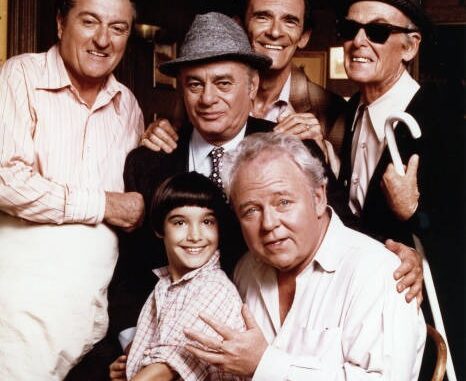
All in the Family was a show that broke down a lot of barriers during its time on television. The topics that were covered in the series were an unsanitized and in-depth view of our society, and the writers weren’t shy about getting to the real meat of the story, no matter what the censors had to say about it.
But the series was groundbreaking, not just in the topics that it covered, but also the relationships it depicted, especially when you consider that before Archie and Edith, many people’s expectation for an on-screen relationship was something to the tune of Lucy and Desi. Archie and Edith, originally based in part on creator Norman Lear’s father and mother, were a mirror of some actual realistic couples. While some parts of their relationship were overplayed for dramatic or comedic effect, Archie and Edith had moments that made them feel like an actual married couple, one who had been together for decades and acted as such.
It’s no wonder, however, that many people took issue with the content depicted on All in the Family, believing it to be vulgar, and they weren’t shy about voicing their opinions. In an interview with The Morning Call, Jean Stapleton, who portrayed Edith Bunker, had a perfect response to those expressing distaste.
She stated, “Some think All in the Family is dirty. “I get a lot of, ‘How could you, a Christian woman, do this?’ notes. Others are highly offended when Archie and I are in bed together, and one viewer pointed out that ‘you and Mr. O’Connor aren’t attractive in your nightclothes.'”
Stapleton’s reply was simple, succinct, and intelligent. She explained it all when she stated, “We’re real.”
In an interview with The Christian Science Monitor News Service, Stapleton spoke up about the impact that she felt the show had on society. She said, “I believe that the overall effect of the show was positive and constructive.” She also explained that not only is society changed by the series, but the series is also changed by society. In an interview with the Corpus Christi Caller-Times, she commented on Edith’s growth as a character, and stated, “Edith is growing, as women are growing.”
